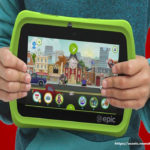In recent years, the integration of artificial intelligence (AI) into educational games has revolutionized the way children and adults learn. These innovative and interactive games leverage the power of AI to create personalized, engaging, and effective learning experiences for users. As a result, educational games using AI have gained popularity and have been recognized as powerful tools for enhancing cognitive skills, problem-solving abilities, and knowledge retention.
One of the most significant advantages of educational games powered by AI is their ability to adapt to the individual needs and learning styles of users. Through sophisticated algorithms and machine learning techniques, these games can analyze the performance and behavior of the players, and then customize the content and challenges to suit their specific strengths and areas for improvement. This personalized approach not only maximizes the learning outcomes but also ensures that users remain motivated and immersed in the learning process.
Moreover, AI-driven educational games have significantly expanded the scope of learning beyond traditional methods. By incorporating advanced technologies such as natural language processing and computer vision, these games offer immersive experiences in subjects like language learning, mathematics, science, and more. For example, language learning games can utilize AI to provide real-time feedback on pronunciation and grammar, while science games can simulate virtual experiments and phenomena, enabling learners to grasp complex concepts in a practical and engaging manner.
The best educational games using AI also contribute to the development of critical thinking and problem-solving skills. Through adaptive challenges and scenarios, these games prompt users to analyze, strategize, and make decisions, thereby fostering a deep understanding of concepts and their practical applications. The inclusion of AI also allows for dynamic content updates, ensuring that the games remain relevant and aligned with the latest educational standards and developments.
Furthermore, AI facilitates the continuous enhancement of educational games by enabling them to learn and evolve based on user interactions and feedback. By leveraging data analytics, AI can identify patterns in user behavior and performance, which can then be used to refine the game content, improve the learning trajectories, and introduce new challenges that are better tailored to the needs of the players.
The emergence of the best educational games using artificial intelligence represents a pivotal advancement in the realm of education. These games have successfully harnessed the capabilities of AI to deliver personalized, immersive, and effective learning experiences. Moving forward, the continued integration of AI into educational games holds great promise for transforming the way people of all ages acquire knowledge and skills, ultimately shaping a more engaging and impactful learning environment.











